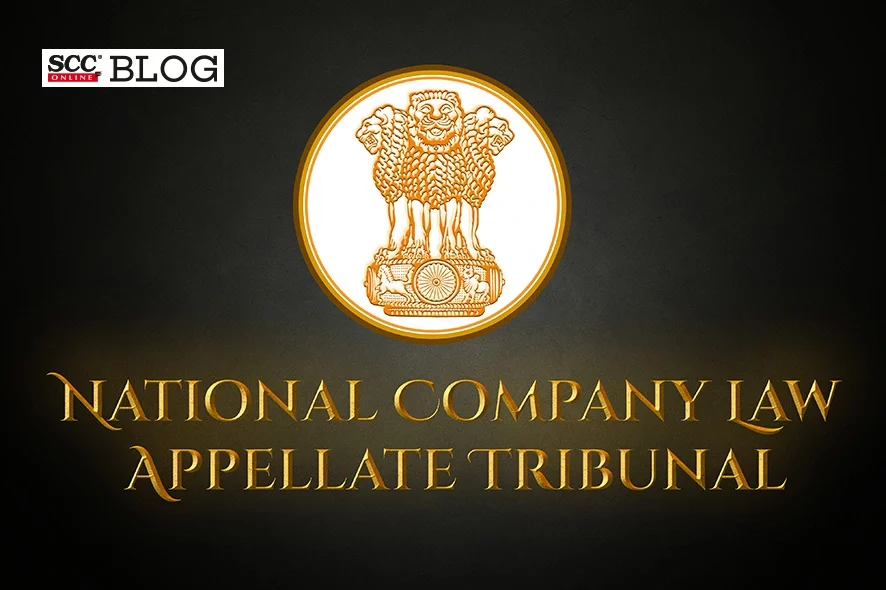National Company Law Appellate Tribunal, New Delhi: While dismissing the appeal, the Division bench of Rakesh Kumar Jain,* J., and Mr. Naresh Salecha* (Technical Member), observed that once a document is relied upon as evidence and the said document has not been objected, it cannot be later rejected or ignored.
“…once a document has been relied upon, produced in evidence, opportunity is granted to the other side to object to its admissibility and the said document has not been objected to at all and the decision has been taken on the basis of the said document, it cannot be, thereafter, rejected or ignored.”
Factual Matrix
In the instant matter, in terms of S. 8 IBC, the Standard Chartered Bank Singapore-respondent sent a demand notice to the Corporate Debtor-appellant calling upon to pay the dues, however, the same was in vain as no payment was made. As a result, the respondent preferred an application under S. 9 on the basis of six invoices and the Assignment Deed. In the reply to the application, the Corporate Debtor made no averment about the Assignment Deed that the same was not duly stamped in terms of the Stamp Act, 1899.
Meanwhile, the Corporate Debtor filed an application before the Adjudicating Authority for examining the Assignment Deed in terms of S. 33(2) IBC, but the same was dismissed. The Corporate Debtor further preferred an appeal before the NCLAT, but the same was also dismissed.
The Adjudicating Authority vide order dated 25-11-2022, admitted S. 9 application filed by the respondent and held that the assignment deed was admissible in evidence. Aggrieved by the impugned order dated 25-11-2022 passed by the Adjudicating Authority, the Corporate Debtor preferred the present appeal before the NCLAT challenging the same.
Moot Point
Whether a document, which is not duly stamped, deserves to be discarded in terms of S. 35 of the Stamp Act, 1899 (the Act), if he same has been admitted during the proceedings by the other party who had the opportunity to challenge the admissibility of the said document?
Law Point
Section 35: Instruments not duly stamped inadmissible in evidence, etc
“No instrument chargeable with duty shall be admitted in evidence for any purpose by any person having by law or consent of parties authority to receive evidence, or shall be acted upon, registered or authenticated by any such person or by any public officer, unless such instrument is duly stamped (…).”
Section 36: Admission of instrument where not to be questioned
“Where an instrument has been admitted in evidence, such admission shall not, except as provided in section 61, be called in question at any stage of the same suit or proceeding on the ground that the instrument has not been duly stamped.”
Observation and Verdict
NCLAT observed that the Corporate Debtor raised the issue of the inadmissibility of the Assignment Deed for the first time during the arguments on the application under S. 9 IBC orally, but when the same was not accepted orally by the Adjudicating Authority the Corporate Debtor filed a Miscellaneous Application for the same purposes and the said application was dismissed, moreover, the appeal for the said application was also dismissed.
The NCLAT relied on Javer Chand v. Pukhraj Surana, AIR 1961 SC 1655, where the Supreme Court held that
“Once a document has been marked as an exhibit in the case and the trial has proceeded all along on the footing that the document was an exhibit in the case and has been used by the parties in examination and cross-examination of their witnesses, Section 36 of the Stamp Act comes into operation. Once a document has been admitted in evidence, as aforesaid, it is not open either to the trial court itself or to a court of appeal or revision to go behind that order. Such an order is not one of those judicial orders which are liable to be reviewed or revised by the same court or a court of superior jurisdiction.”
and Shyamal Kumar Roy v. Sushil Kumar Agarwal, (2006) 11 SCC 331, where it was held by the Supreme Court that
“If no objection had been made by Appellant herein in regard to the admissibility of the said document, he, at a later stage, cannot be permitted to turn round and contend that the said document is inadmissible in evidence.”
The NCLAT remarked that once a document has been relied upon and not objected to, it cannot be rejected or ignored. The NCLAT further held that in the present case, S. 36 of the Act applies, and not S. 35 of the Act.
The NCLAT dismissed the present appeal on not finding any merit in it.
[Rajeev Gupta v. Standard Chartered Bank (Singapore) Ltd., 2023 SCC OnLine NCLAT 207, order dated 01-05-2023]
*Judgment by Justice Rakesh Kumar Jain
Advocates who appeared in this case :
Mr. Mohit Chaudhary, Mr. Prakhar Mithal, Counsel for the Appellant;
Mr. Krishnendu Datta, Sr. Adv. with Ms. Vatsala Rai, Mr. Sushvut Garg, Ms.Varsha Himatsinghka, Counsel for the Respondent No. 1;
Mr. Vishal Ganda, Ms. Akansha Mathur, Ms. Aashta, Bansal, Ms. Deepika Singh, Counsel for the Respondent No. 2.







